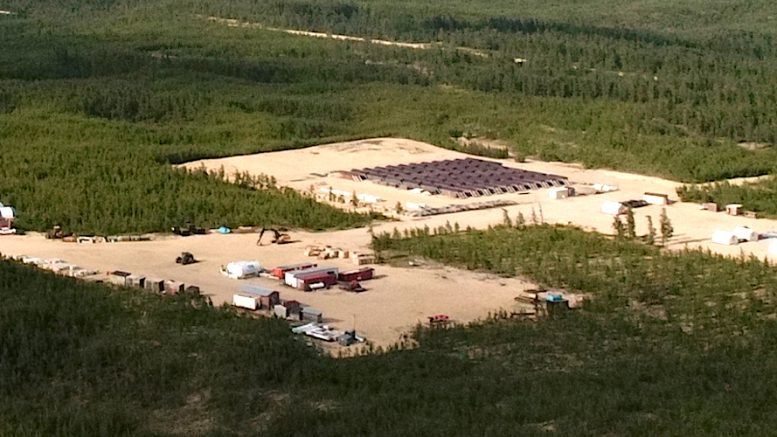Australia’s Paladin Energy (ASX: PDN) has hit a roadblock in its proposed acquisition of Canada’s Fission Uranium (TSX: FCU) after a Chinese investor in the takeover target opposed the tie-up.
The Western Australia-based miner revealed on Monday that CGN Mining Company, a subsidiary of China General Nuclear Power with a 11.26% stake in Fission, is opposing the tie-up.
Paladin moved in June to buy the Canadian miner for $1.1 billion, contingent on at least two-thirds of Fission shareholders voting in favour of the transaction by Aug. 26.
The company, which would become the third-largest publicly traded uranium producer with the planned acquisition, failed to reach that threshold as nearly half of eligible shareholders did not submit their proxies by the deadline. A special general meeting was postponed to Sept. 9, in which 67.9% of Fission’s shareholders voted in favour of the deal.
The matter is now before the Supreme Court of British Columbia, which will issue a final ruling on the acquisition. The court proceedings began on on Sept. 13 and are scheduled to resume on Sept. 26.
The bid came amid the global shift towards nuclear energy that took off a year ago, which triggered a supply crisis and drove the spot price to a 16-year high of over US$100 per lb. in January. It’s since dropped to just under US$80 per pound.
Paladin chief executive, Ian Purdy, says that Fission’s Patterson Lake South project in Saskatchewan is a natural fit for the company, providing medium-term development potential to complement production from the recently restarted Langer Heinrich mine in Namibia.
Closer to the US
Fission’s asset is also attractive because of its proximity to Paladin’s major customer, the United States, offering the chance to create a hub with Paladin’s existing uranium project in Canada — Michelin.
The combined company would be worth $3.5 billion, hold dual listings in Australia and Canada, and churn out 10% of global uranium output.
Paladin has been hunting for growth options outside the home country, as uranium mining is banned in Western Australia and Queensland. The company believes there’s a shortage of primary production coming out of the ground and that the trend is set to continue.
“We’ve seen very strong demand for our Langer Heinrich product. And we expect that when we’re ready to bring our customers to underpin PLS later this decade, that demand (will) be extremely strong,” Purdy said during a July visit to Toronto.
Paladin shares dropped on the news reaching an intra-day low of A$8.97 on the ASX. The stock closed 1.81% down at A$9.20 per share, leaving the company with a market capitalization of A$2.8 billion (US$1.9 billion).


Be the first to comment on "Chinese investor steps in to block Paladin’s Fission buy"